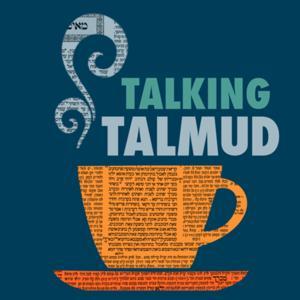The Mishna addresses the case of blood that becomes mixed with water or other substances: under what circumstances can it still be offered on the altar? If the mixture retains the appearance of blood, it may be brought. If it is mixed with a substance of the same color, such as wine or blood not designated for sacrifice, but had that substance been water the blood would still be recognizable, then the blood is likewise valid for the altar. Rabbi Yehuda, however, rules that blood is not nullified in other blood, since they are of the same essence. Therefore, even if only a minimal amount of sacrificial blood is present in a mixture with other bloods, it may still be sprinkled on the altar. By contrast, if the blood is mixed with disqualified blood, such as the blood that flows after the initial spurt of slaughter, the mixture must be spilled and cannot be used. Rabbi Eliezer permits it.
Rabbi Chiya bar Abba, quoting Rabbi Yochanan, limits the Mishna's ruling to a case where another substance spilled into the blood. But if blood dripped into water, each drop would be nullified upon contact, immediately rejected from altar service. Once rejected, it cannot later be accepted, even if the majority of the final mixture is blood. This principle of "rejection" applies only to kodashim, not to mitzvot such as the commandment to cover the blood after slaughter.
Reish Lakish rules regarding a mixture of pigul and notar: if one eats them together, there is no punishment of lashes. From this, the Gemara derives three principles about mixtures: (1) even forbidden items can nullify one another; (2) the rule that an item imparting taste is considered significant and not nullified is not a Torah law; (3) a warning given in a case of doubt (hatra'at safek) is not considered a valid warning.
A difficulty is raised against the second principle. After an unsuccessful attempt to resolve it, the derivation is rejected. Reish Lakish was speaking of pigul and notar involving two similar items, i.e. meat and meat, which are nullified by majority since their taste is indistinguishable. Taste is only a factor when dissimilar items are mixed, where the flavor is perceptible.
The Gemara then questions: if similar items are nullified by majority, why does the Mishna, in the case of wine and blood, assess whether the wine would be noticeable if it were water? Since both taste and visibility rely on the same concept, it seems the Mishna treats two similar items as if they were different. If so, why not apply the same reasoning to Reish Lakish's case of pigul and notar, viewing them as distinct, and if they impart taste, liability should follow? After one failed attempt to reinterpret the Mishna, the Gemara resolves the difficulty differently: there is a tannaitic dispute. The Mishna reflects Rabbi Yehuda's opinion, while Reish Lakish follows the rabbis.
A contradiction is raised against Rabbi Yehuda's position from a Mishna Mikvaot 10:6. To explain it, one must assume the Mishna is authored by Rabbi Yehuda, since it employs the principle of "we view the item as if…". Yet at the end of the Mishna, purification waters are nullified in a mikveh if the mikveh waters are the majority. This stands in opposition to Rabbi Yehuda's stance that similar items are treated as different and are not nullified based on appearance.




































